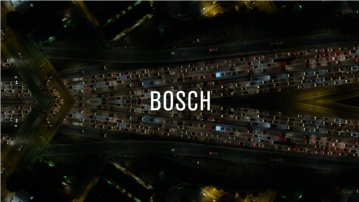Adapted by
Eric Overmyer as an Amazon Prime Video series (seven seasons) from Michael
Connelly’s long-running crime novel series, Bosch follows veteran LAPD
detective Hieronymus “Harry” Bosch (Titus Welliver). Working alongside Det.
Jerry Edgar (Jamie Hector) under the command of Lt. Grace Billets (Amy Aquino)
out of the Hollywood division, Bosch investigates homicides while raising a
teen daughter, Maddie (Madison Lintz). His dedication to the belief that “Everybody
counts or nobody counts” and his stubborn refusal to back down put him not only
in danger but also at odds with police brass such as the politically ambitious
Irvin Irving (Lance Reddick).
In the
wake of morally ambiguous The Shield and sociological magnum opus that
is The Wire, a more straightforward police procedural such as Bosch
can seem like an anachronism, a throwback to the days of 1990s Law &
Order. While it is true that Bosch lacks the audacity of police
officers murdering their own team members to cover up their corruption or
fabricating a serial killer to clock overtime hours, its lower-key approach is
far from staid and sanitized. What it lacks in ingenuity, it makes up for in
earnestness, atmosphere, and craftsmanship.
It helps
that there is so much source material from which to draw. Connnelly, a former Los
Angeles Times crime reporter, has written more than twenty Bosch novels
during the past three decades, and a typical season of the show stitches
together plotlines from two or three of them. This is a pragmatic move on
Overmyer’s part that makes the show accessible to those who haven’t read the
books while capturing enough of their essence (even when changing details) to
avoid aggravating those who have. It ensures that there is plenty going on each
season though it may not always seem that way due to the show’s slow,
deliberate pacing.
For those
with the requisite patience, however, character development pays off
handsomely. Welliver is an excellent character actor, and this role is no
exception, but his take on Harry doesn’t have quite enough gravitas to carry
the series. Fortunately, it doesn’t have to. Edgar’s law-bending pursuit of a protected
Haitian war criminal, Grace’s battle against sexism in the department (as well
as a homophobic witch hunt initiated by a rival), and Maddie’s journey toward
finding her place in the world are all compelling, and they help establish the
ensemble as more than a collective of suits spouting one-liners. Even Irving, mostly
antagonistic in the books, is given more humanity here, his political
maneuvering juxtaposed against his parental anguish.
Beyond
that, the series makes good use of Los Angeles locations, and, especially,
music. Harry’s love of jazz is retained from the novels, and the show’s opening
theme (“Can’t Let Go” by Caught a Ghost) is extremely catchy. You won’t find Rian
Johnson levels of camera wizardry here, but Bosch is atmospherically
engrossing in its own right.
Those who
tie a work’s worth to its willingness to disrupt the status quo will likely
roll their eyes at Bosch’s conventionality, but writing it off as just
another cop show overlooks the complexities in the lives that it tracks.

No comments:
Post a Comment